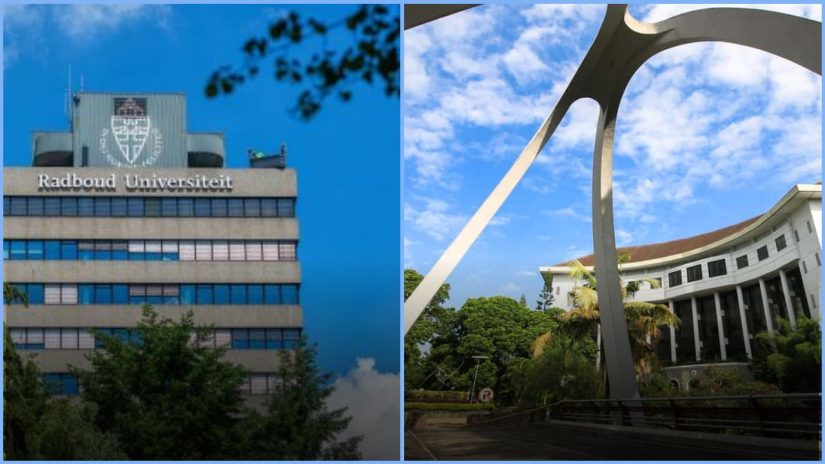
On Friday, December 1, 2023, at the Aula of the Radboud University Nijmegen, Professor Emeritus Frans Wijsen delivered his farewell speech entitled “Exploring Man and Nature: Does the Supernatural Matter?” At Radboud University, Wijsen served for many years in the Department of Empirical and Practical Religious Studies. Since 2022, he has been an adjunct professor at the Graduate School of Universitas Gadjah Mada (UGM).
He was honored with the Distinguished Lifelong Academic Achievements Award of the African Academics Network. He also received a copy of the book Beyond the Spirit of Bandung, edited by Frans Dokman and Antoinette Kankindi. The book, available open-access, is dedicated to him on the occasion of his retirement as professor at Radboud University Nijmegen.
The retirement from Radboud does not mean that Wijsen will become less busy, as he is now more active as an adjunct professor at UGM. At UGM, he teaches mostly in the PhD Program in Interreligious Studies (ICRS) and the Master’s Program of Religious and Cross-cultural Studies (CRCS). He also holds academic writing classes to supervise students’ academic writing.
Even before the official appointment as an adjunct professor, he has been working with colleagues at CRCS and ICRS for many years and supervised quite a few Indonesian students finishing their PhD at Radboud. At present, he co-directs a large-scale research project on humans and nature with Zainal Abidin Bagir of ICRS, Samsul Maarif of CRCS, Muhammad Yusuf of the Faculty of Cultural Sciences, UGM, and Any Marsiyanti. The first article from this collaboration, based on a pilot project conducted in 2020, was published in the Journal for the Study of Religion, Nature and Culture (2023). The large-scale survey of more than 1000 respondents was delayed because of the COVID-19, but was completed in 2023.
In his farewell speech, Wijsen referred to the research. It is a comparative analysis of Human and Nature Research that originated in the Netherlands, and then was conducted in several other countries. Among the questions he addressed in his speech was whether religion matters when it comes to thinking about nature and how people should deal with it? Is there a difference between the Netherlands and Indonesia in this regard?
From January to July 2024, Wijsen will live in Yogyakarta, co-teaching a class on research methods in religious studies and another on religion and ecology. He will also continue supervising doctoral students in the process of writing publications based on their dissertation research.
Wijsen has also been the editor-in-chief of the journal Studies in Interreligious Dialogue. Along with his move to Yogyakarta, the journal will also move its home to Yogya, hosted by ICRS, and supported by the Graduate School of UGM. The move carries a symbolic meaning: while the journal will remain international in its scope, he hopes that it would also create an epistemic community based in Asia, a very religiously diverse continent, and a place which sees a vibrant growth of interreligious studies.
(Maria Ingrid, ICRS staff who is about to complete her doctoral study at Radboud University, contributed to this article)
